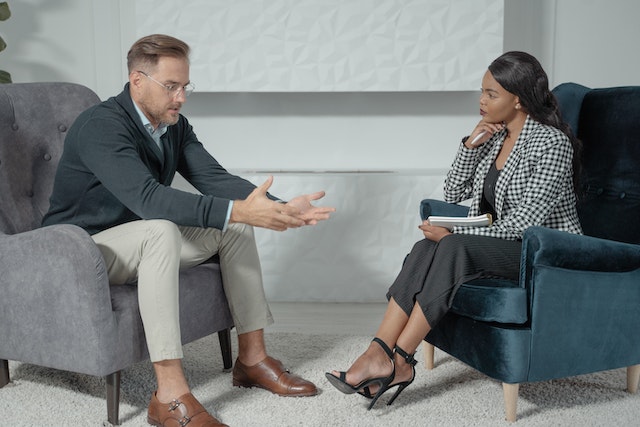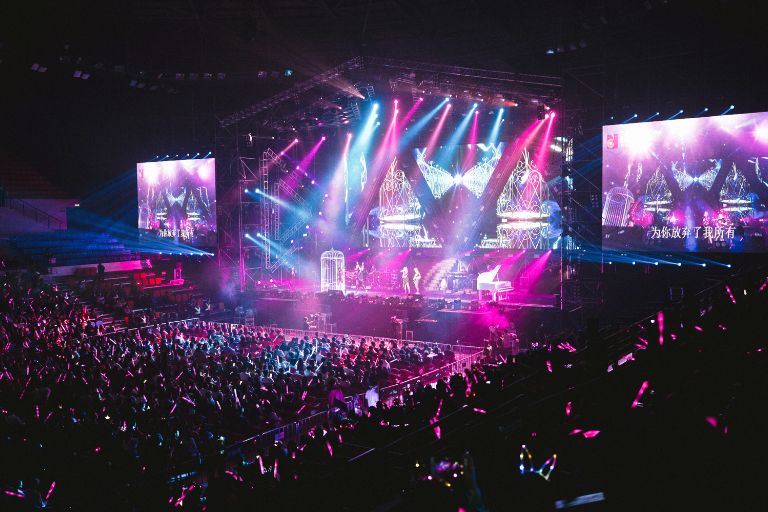Preparing for a job interview can be a nerve-wracking experience. From researching the company to practicing potential interview questions, there are numerous tasks to complete before the big day. One crucial aspect that often gets overlooked is knowing what to bring to an interview. While your resume and professional attire are a given, there are several other items that can enhance your preparedness and confidence during the interview process. In this blog post, we will delve into the essential items you should consider bringing with you to an interview, ensuring that you are fully equipped for success.
What do you Need to Bring to an Interview
1. Multiple Copies of Your Resume
One of the most crucial items to bring to any interview is multiple copies of your updated resume. Although the interviewer may already have a copy, it is essential to have extras readily available in case there are multiple interviewers or unexpected circumstances arise. These copies will serve as a handy reference for both you and the interviewers, allowing for smoother conversations and avoiding any awkward moments.
2. A Pen and Notepad
While it may seem like a small detail, bringing a pen and notepad can demonstrate your attentiveness and professionalism during an interview. It allows you to take notes, jot down any important details, or questions that arise during the conversation. Additionally, having a notepad in front of you can serve as a helpful reminder of key points you wish to discuss, ensuring that you don’t forget any critical information during the interview.
3. Professional References and Contact Information
What to bring to an interview? It is always wise to bring a list of professional references to an interview. These references should be individuals who can vouch for your skills, work ethic, and character. Make sure to include their names, job titles, contact information, and a brief description of your professional relationship with them. Providing this information showcases your preparedness and willingness to share credible sources that support your qualifications for the job.
4. A Portfolio or Work Samples
Depending on the nature of the job you are applying for, it can be beneficial to bring a portfolio or work samples to showcase your skills and accomplishments. This is particularly important for creative roles or industries where visual representations of your work can make a significant impact. If applicable, choose a few relevant samples that highlight your abilities and demonstrate the value you can bring to the prospective employer.
5. Questions to Ask
An interview is a two-way street, and it is essential to have questions prepared to ask the interviewer(s). This shows your interest in the role and allows you to gather valuable information about the company, team dynamics, and potential growth opportunities. Prepare a list of thoughtful and well-researched questions that can help you evaluate if the company and position align with your goals and aspirations.
6. Identification and Contact Information

what to bring to an interview? It is crucial to bring a valid form of identification to the interview, as some companies may require it for security purposes or to complete any necessary paperwork. Additionally, carry a list of contact information, including the name and phone number of the person(s) you are meeting, as well as the company’s address. This will come in handy if you encounter any unforeseen circumstances or need assistance finding the location.
7. Breath Mints and Personal Grooming Essentials
First impressions matter, and your personal appearance can play a significant role in how you are perceived during an interview. Freshen your breath with breath mints or gum before entering the interview room. Additionally, carry personal grooming essentials such as a comb or brush, a small mirror, and some tissues to ensure you can quickly tidy up and make any necessary touch-ups before meeting your potential employer.
8. Relevant Certifications and Licenses
what to bring to an interview? If you possess any relevant certifications or licenses that are applicable to the position you’re interviewing for, be sure to bring copies of these documents. They serve as tangible evidence of your qualifications and can reinforce your expertise in a particular field. These could include certifications in project management, specialized software training, or industry-specific licenses.
9. Professional Attire
While not something you technically “bring” to an interview, it is crucial to dress professionally and appropriately for the occasion. Dressing in business attire shows respect for the opportunity and demonstrates that you take the interview seriously. Plan your outfit in advance, ensuring that it is clean, well-fitted, and appropriate for the industry and company culture.
10. A List of Accomplishments and Success Stories
Prepare a list of notable accomplishments, successes, or projects you have worked on in your previous roles. These examples can serve as talking points during the interview when discussing your experience and skills. By showcasing your achievements, you provide concrete evidence of your abilities and highlight how you can bring value to the potential employer.
11. Research Materials
Bringing any relevant research materials about the company or industry can demonstrate your genuine interest and dedication to the role. This could include articles, reports, or recent news about the company, its competitors, or industry trends. Referencing these materials during the interview can help you engage in informed discussions and showcase your knowledge and enthusiasm.
12. Directions and Transportation Information
Ensure that you have directions to the interview location and plan your transportation method in advance. If you are driving, have the address, parking instructions, and any necessary parking permits. If you are using public transportation, familiarize yourself with the routes, schedules, and potential delays. Being well-prepared in terms of transportation will help you arrive on time, reducing stress and potential lateness.
13. Positive Attitude and Confidence
While not physical items, a positive attitude and self-confidence are what to bring to an interview. Projecting a positive demeanor and exuding confidence can leave a lasting impression on the interviewer(s). Believe in yourself, maintain good eye contact, and exhibit enthusiasm for the opportunity. A confident and positive attitude can significantly influence how you are perceived by the interviewer(s).
14. Emergency Contact Information
It’s always a good idea to have emergency contact information readily available, just in case. This could include the contact details of a trusted family member, friend, or significant other who can be reached in case of an emergency or unexpected circumstances during the interview process. While unlikely, having this information on hand can provide peace of mind and ensure you’re prepared for any unforeseen situations.
15. Examples of Problem-Solving
what to bring to an interview? Consider bringing examples of how you have successfully approached and solved problems in your previous roles. These examples can demonstrate your critical thinking skills, adaptability, and ability to handle challenging situations. Be prepared to discuss specific scenarios where you identified a problem, took appropriate action, and achieved positive outcomes.
16. Proof of Eligibility to Work
If you are applying for a position in a country where you are not a citizen, it’s important to bring proof of your eligibility to work in that country. This could include documents such as a work visa, employment authorization card, or any other legal documentation that allows you to work legally in that particular location. This demonstrates your compliance with legal requirements and ensures a smooth hiring process.
17. A Portfolio of Relevant Work

What to bring to an interview? For certain roles, such as designers, writers, or artists, having a physical or digital portfolio can be highly beneficial. Include samples of your best work that showcase your skills and creativity. This visual representation of your abilities can leave a lasting impression on the interviewers and help them evaluate your suitability for the role. Ensure that your portfolio is well-organized, easily accessible, and aligns with the position you are applying for.
18. Industry-Specific Tools or Equipment
In some industries, it may be relevant to bring specific tools or equipment that are commonly used in the field. For example, if you are applying for a role in photography, you might want to bring your camera and a selection of your work. Similarly, if you are a software developer, you may want to bring a laptop with relevant coding samples or projects. Assess the requirements of the role and consider if bringing specific tools can enhance your interview presentation.
19. A List of References
What to bring to an interview? Aside from bringing professional references, consider preparing a list of personal references as well. These references could be mentors, professors, or individuals who can speak to your character and personal attributes. While not always required, having a list of references readily available shows that you are well-prepared and can provide additional insights into your qualifications and personality.
20. A Positive Mindset and Enthusiasm
Lastly, it’s essential to bring a positive mindset and genuine enthusiasm to the interview. Your attitude and energy can make a significant impact on the interviewer’s perception of you. Show genuine interest in the company, the role, and the opportunity to contribute. Displaying enthusiasm can help you connect with the interviewer(s) on a personal level and demonstrate your motivation and passion for the position. That definitely what to bring to an interview.
What Not to Bring to an Interview
- Excessive Personal Belongings:
When attending an interview, it is important to keep your belongings minimal and organized. Avoid carrying large bags, backpacks, or excessive personal items that can create a cluttered impression. Opt for a professional-looking briefcase or portfolio to carry essential documents and items.
- Food or Drinks:
While it’s important to stay hydrated and nourished, it’s best to avoid bringing food or drinks to the interview. Consuming food during the interview can be seen as disrespectful or distracting. Instead, ensure you eat a proper meal before the interview and carry a bottle of water if needed, but refrain from drinking it during the interview itself.
- Cell Phones or Electronic Devices:
To avoid any potential distractions or interruptions, it’s crucial to turn off or silence your cell phone and any other electronic devices before entering the interview. Constantly checking your phone or allowing it to ring can display a lack of focus or disrespect for the interviewer’s time. Keep your attention solely on the interview and give your full presence and attention to the conversation.
- Negative Attitude or Complaints:
Leave any negative attitude or complaints at the door. It’s essential to present yourself as positive, professional, and enthusiastic during the interview. Avoid discussing previous negative work experiences, criticizing former colleagues or employers, or expressing any dissatisfaction that may project a negative image of yourself. Instead, focus on highlighting your strengths, achievements, and how you can contribute positively to the potential employer.
- Irrelevant Documents or Personal Information:
While it’s important to bring relevant documents, it’s equally important to avoid bringing any unnecessary or irrelevant paperwork. Avoid carrying personal documents, such as tax records, medical reports, or personal financial statements. Stick to the documents directly related to the job application, such as your resume, portfolio, and references.
- Strong Fragrances:
Be mindful of the use of strong perfumes, colognes, or fragrances before an interview. What may be appealing to you could be overpowering or irritating to others. Some individuals may also have sensitivities or allergies to certain scents. It’s best to keep scents minimal or avoid them altogether to ensure a comfortable and professional environment.
- Preconceived Assumptions or Biases:
It’s crucial to approach the interview with an open mind and avoid bringing preconceived assumptions or biases. Treat each interview as a fresh opportunity to learn and engage with the interviewer. Listen attentively, ask relevant questions, and evaluate the opportunity objectively. Base your judgments and decisions on the information gathered during the interview rather than predetermined notions.
Conclusion:
Knowing what to bring to an interview can significantly enhance your preparedness and professionalism. By considering the items mentioned above, including multiple copies of your resume, a pen and notepad, professional references, work samples, and questions to ask, you will be well-equipped to tackle the interview process with confidence.
Now you know what to bring to an interview, and remember to tailor your items based on the specific requirements of the role and industry. With the right preparation and a positive mindset, you can present yourself as a qualified and enthusiastic candidate, increasing your chances of securing the job. Best of luck!
FAQ: What to Bring to an Interview
Q1: What should I bring to an interview?
A1: There are several essential items to bring to an interview. These include multiple copies of your resume, a pen and notepad for taking notes, professional references and their contact information, a portfolio or work samples (if applicable), a list of questions to ask, identification and contact information, breath mints or personal grooming essentials, and a positive attitude and confidence.
Q2: How many copies of my resume should I bring to an interview?
A2: It’s recommended to bring at least three to five copies of your updated resume. These copies will be useful in case there are multiple interviewers or unexpected circumstances arise. It’s always better to have more than you need to ensure that everyone involved in the interview process has a copy.
Q3: Should I bring a list of references to the interview?
A3: Yes, it’s a good idea to bring a list of professional references to the interview. Include the names, job titles, contact information, and a brief description of your professional relationship with each reference. This demonstrates your preparedness and allows you to provide credible sources that support your qualifications.
Q4: What should I include in my portfolio for an interview?
A4: Your portfolio should include relevant work samples that showcase your skills and accomplishments. Choose a few examples that best highlight your abilities and align with the position you’re applying for. Include a variety of projects or work that demonstrate your range and expertise in the field.
Q5: Is it necessary to bring questions to ask during the interview?
A5: Yes, it’s highly recommended to prepare a list of thoughtful and well-researched questions to ask during the interview. Asking questions shows your interest in the role and allows you to gather valuable information about the company, team dynamics, and growth opportunities. It also demonstrates your engagement and proactive approach to the interview.
Q6: Can I bring my cell phone to the interview?
A6: It’s best to leave your cell phone and other electronic devices turned off or silenced during the interview. This ensures that you can give your full attention to the interview without any distractions or interruptions. If possible, it’s advisable to leave your cell phone in your bag or pocket throughout the interview.
Q7: Do I need to bring my academic certificates or transcripts to the interview?
A7: In most cases, academic certificates or transcripts are not necessary to bring to an interview unless specifically requested by the employer. Focus on bringing items directly related to the job application, such as your resume, portfolio, and references. If there is a need for academic documentation, the employer will typically inform you in advance.
Remember, it’s always best to check with the employer or interviewer if you have any specific questions about what to bring to an interview. It’s important to be well-prepared and organized to make a positive impression during the interview process.



